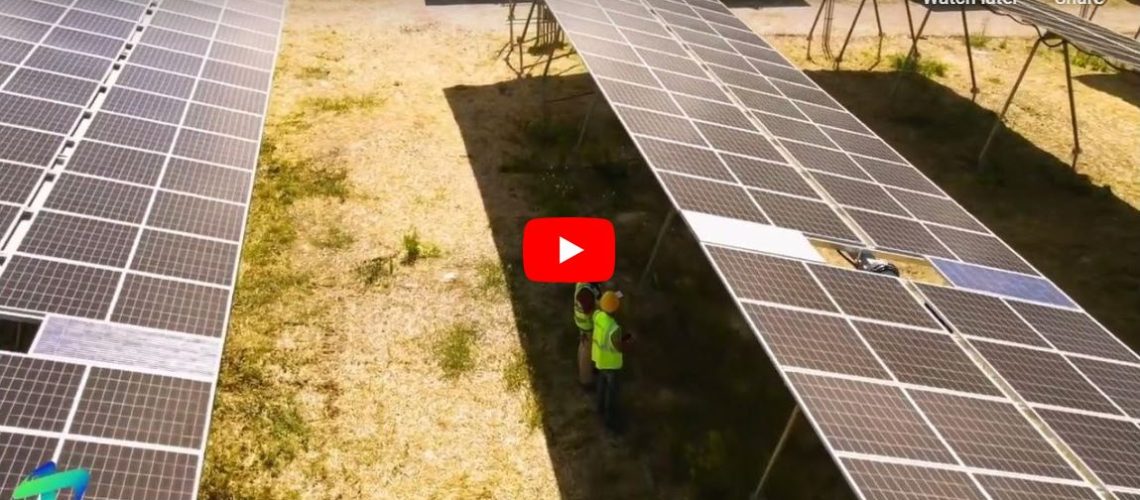In this 60 Seconds in the Sunlight, we tour the 6.5 MW Rumford Solar farm in Rumford, Maine, developed and built by Nexamp with its partner Terrasmart, to overcome rocky soils, undulating slopes (up to a 20% grade ) and harsh Northeastern winters. The result is more than 5,000 ground screws and 215 TerraTrak single-axis rows to support 16,068 bifacial modules.
How’d they get there? Given the site’s grueling parameters, the Rumford team agreed that pile foundations would not be suitable. Ground screws, on the other hand, would eliminate 100% of the refusal risks while protecting foundation integrity against frost heave, minimizing land grading, and slashing other civil expenses.
The potential for 105 mph winds and 100 psf of snow pressure required adaptable racking with built-in flexibility. In addition, frost depths up to 50 inches required a high front panel clearance of 45 inches – not a standard design for trackers with ground screw foundations.
TerraTrak, however, is paired with an adaptable A-frame structure designed to support ground screw foundations. The A-frame redirects loads to favorable forces onto the ground screws. TerraTrak also uses screw extensions to bring more versatility to the project. In this case, the SAT was designed to allow for 11% E/W and 20% N/S slope adjustments while providing a +/- 60-degree range of motion. Designing around the bifacial layout meant incorporating multiple configurations of tracker rows to fit within the site’s boundary and maximize yield.
Designing the 2P tracker system to optimize bifacial technology entailed increasing E/W spacing between panels. TerraTrak typically has 0.5 inches between modules for monofacial panels, but the team increased this spacing to 4.5 inches to ensure the tracker structure did not block reflected sunlight on the backside of the panel. Because TerraTrak’s design allows for custom purlins, the Rumford team was able to increase the project’s power output.
Tags: 60 Seconds, Terrasmart



